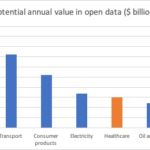Employee Engagement, Investor Value: Why the Time has Come for Inclusive Employee Ownership in Emerging Markets
In recent years, employee ownership programs have become more commonplace at companies from Silicon Valley to Europe and Asia. However, in Africa and other emerging markets there are few, if any, companies that give equity to employees. There are even fewer companies worldwide that give equity to all employees, opting instead to provide equity to select leadership or senior technical or engineering teams.
At our company, Fenix International, which provides pay-go solar home systems to over 200,000 customers and employs teams in Uganda, Zambia, Cote d’Ivoire, San Francisco and China – we believe employee ownership is transformative. We have grown rapidly over the past two years and have simultaneously realized significant improvements in our financial performance. We believe that is largely due to our employee ownership program and the powerful effect it’s had on all areas of our business: our employees, our customers and our investors.
A Simple Question Sparks A Transformative Change
While many members of the leadership team wanted to give equity to all Fenix employees from day 1, it took five years to make it happen. The idea took root during an all-hands team meeting in 2015, when one of our first employees in Uganda stood up and asked a simple question: “Can Fenix employees buy shares in the company to help the business grow?” He said the team believed in the company, and wanted to help with fundraising efforts and to become shareholders in the company they had helped to build. Several other team members broke the silence and applauded the recommendation. By the end of the meeting there was widespread enthusiasm to grow the company by turning employees into owners.
This outpouring of support was extremely powerful – and somewhat unexpected, especially for a young startup in Uganda. Many employees were supporting large families, had private school fees to pay and were already working long hours on startup salaries. Furthermore, we were still being told by investors, lawyers and even friends that African employees did not value shares as much as cash compensation. But widespread support within the company was evidence that not only did employees value shares – they were even willing to buy them.
At the time, a limited number of Fenix employees had equity. When Fenix first came to Uganda in 2009, privately owned companies did not commonly implement broad-based employee ownership programs. In addition to the belief that they were not valued or understood, the discussion in most boardrooms was that many tax, legal and accounting challenges came with giving equity to all employees. While many members of our leadership team believed in inclusive ownership from the start, we decided not to fight this battle in the early days.
But it’s important to challenge the assumptions that pervade the corporate imagination, especially when operating in new markets with diverse customers and employees with lives that are very different from our own. The passion of the team at the all-hands meeting was all we needed to spur us towards creating an inclusive ownership program for 100 percent of our employees.
A Challenging Transition
We immediately faced challenges on all fronts. Executives, partners, advisors and investors told us employee ownership would not be understood. Lawyers told us there would be numerous insurmountable legal challenges. Accountants said that there would be prohibitive tax issues, and that the costs of administering the program would outweigh the benefits of giving equity to hundreds of employees in five countries around the world. And even some mentors questioned our belief that giving ownership today would lead to value creation tomorrow.
Over the next few years, we spent countless hours creating an inclusive team ownership program called “Fenix Flames.” Our goal was to design an entirely new way of allocating shares that gave everyone a stake in the company’s growth. And by everyone, we meant every single employee – from the CEO to sales managers, call center staff, support teams, chefs, cleaners, guards, data scientists and more. Employees would receive “Flames” according to their seniority and length of service. We believed we would grow faster and build a more profitable business if employees knew they would share in the financial benefits of an acquisition or IPO. We were determined to demonstrate the economic benefits of ownership in a way that was scalable, appropriate and high-impact for all stakeholders, including our investors.
In 2016, after reviewing countless proposals, Excel spreadsheets, legal opinions and tax analyses, we presented the proposal to our board of directors. Given the passion of the leadership team, the feedback from the broader team and our conviction that this would drive value for our investors, the board approved it. Forty-eight hours later we announced it to the Fenix team, and a few months later we had an official ceremony to hand out their new Fenix Flames certificates, formalizing their ownership. That day was one of the most meaningful professional experiences of my career. I remember one teammate, Stephen, explaining to me that he came from a humble background, and never imagined he would own shares in a business one day, “let alone a business that I helped to build.” He couldn’t wait to share this with his wife and father, and pledged to work even harder than ever to make sure Fenix was successful.
The Impact So Far
Since instituting the program, we have witnessed first-hand many impacts of it: Fenix Flames helped us attract strong talent, increased employee loyalty and boosted employee performance. Most notably (and against common wisdom), we have seen that employee ownership programs like ours can increase profitability and returns to shareholders. The real sense of ownership often leads to employees offering more ideas and feedback – from developing new products to identifying new markets, anticipating challenges and seizing new opportunities.
For example, several customer service representatives have made suggestions on how to improve the efficiency of our call center. Sales team members have made proposals to increase the quality of our new customers and reduce the cost of sale. Fenix guards keep our offices secure and go above and beyond to help with customer service and operations.
While shareholders will have a slightly smaller piece of the pie as a result, we believe broad-based ownership makes the pie much bigger. Instead of only senior executives thinking about profitability and return on investment, we have over 350 employees – the team closest to our customers and day-to-day operations – thinking about value creation and driving growth every single day.
The program was designed to offer Fenix Flames holders a payout any time common stockholders received a payout, such as an acquisition or public listing. After global energy company ENGIE acquired Fenix last year, 350 employees based in Africa reaped the financial benefits of the acquisition, receiving a payout according to the number of Flames they had accrued. Some of the longest-serving members of the team have received two to five times their gross annual salary.
We worried that some employees would leave Fenix after receiving their second payout, but most have said they want to stay. As our Sales Manager Denis Mutti said, “Fenix is our company and we want to be part of its future. Fenix has invested in us, we have invested in Fenix, we have an important mission to achieve and we know that Fenix will continue investing in us as we grow.”
A Growing Movement
Fenix Flames was still a young initiative when we were acquired, and I learned a lot about how we could have done it better – as well as ideas on how to improve it in future iterations. I want to invest time in the year ahead to learn more about other employee ownership models and to help interested companies create even bigger and better employee ownership programs.
Programs like ours have demonstrated that growth, innovation and employee engagement can be achieved through inclusive employee ownership. We are already talking to a number of other companies about creating their own versions of this kind of program. In the next few years, I hope to see a vibrant business community with many more inclusive employee ownership programs across similar markets in Africa and beyond.
If you would like to learn more about Fenix Flames or participate in the Flames Community, email us at flames@fenixintl.com. If you have experience to share, ideas, questions or alternative viewpoints, please share them here and help us spread the word about Fenix Flames and the power of inclusive employee ownership.
Lyndsay Handler is the CEO of Fenix International.
Photo credit: Fenix International
- Categories
- Energy, Social Enterprise



